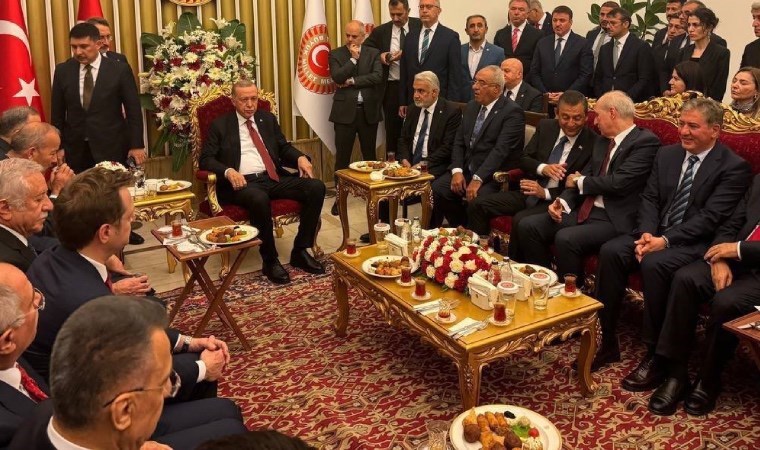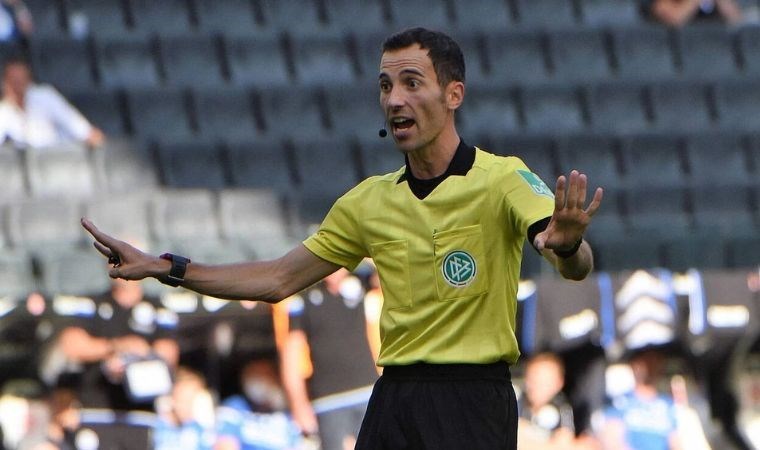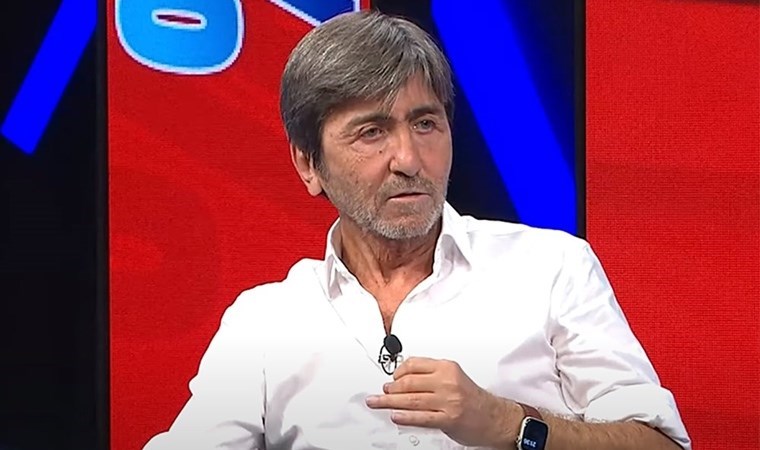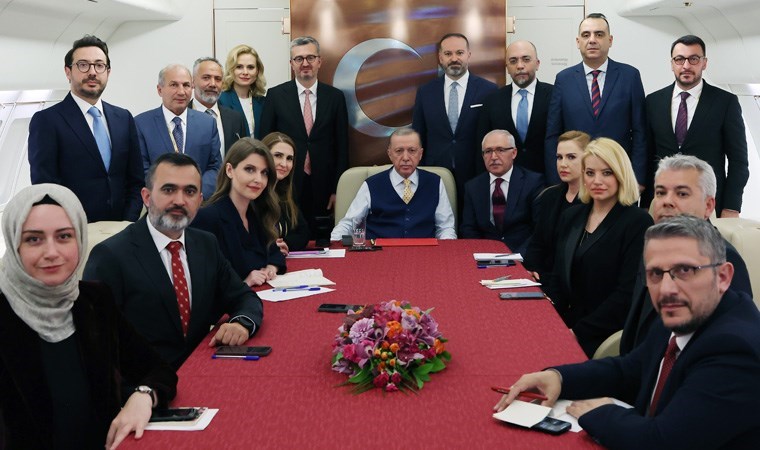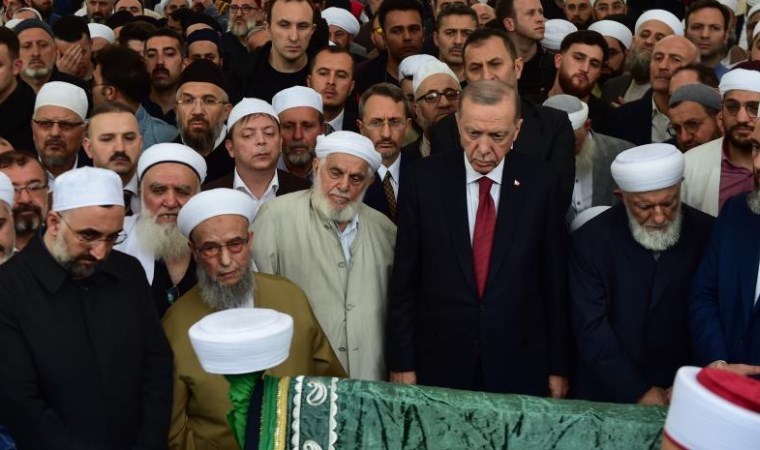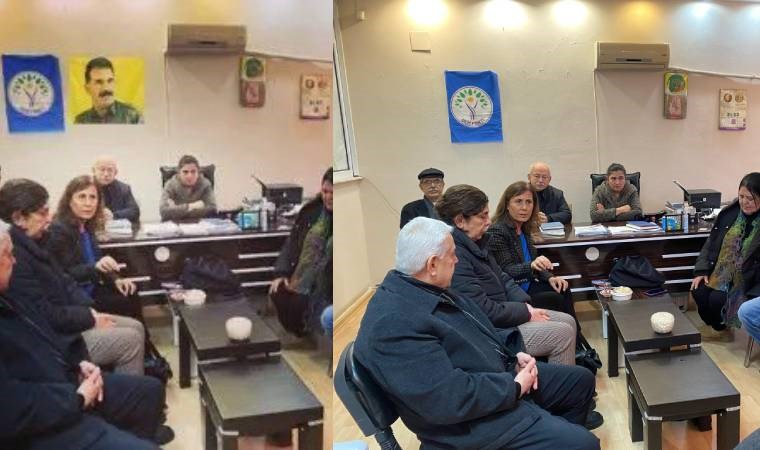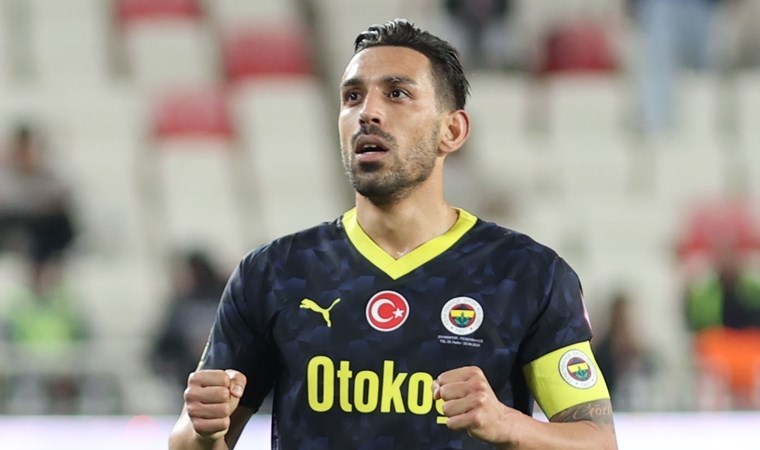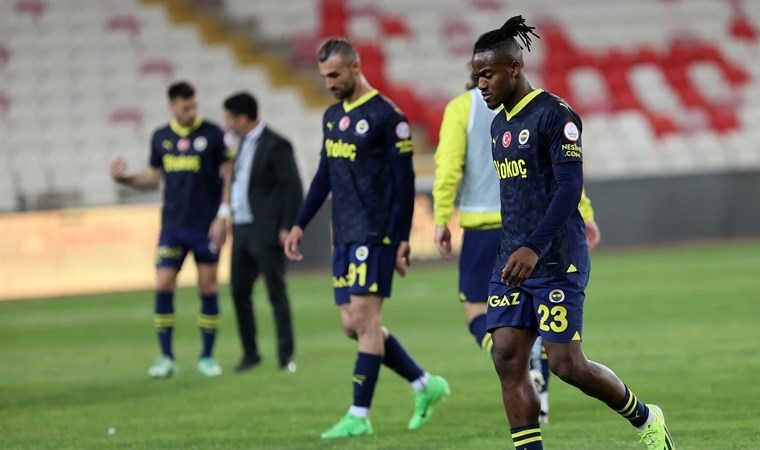Our slogan was “Nobody can detain us”
Musa Kart and Önder Çelik speak of their nine months in prison.
Erdem Gül
Musa Kart is a cartoonist. His is a name that is synonymous with Cumhuriyet. He had the following to say about his nine months’ detention and his state of mind post release:
-Nobody can say, “Justice exists”: This case’s file has now taken its place on bookshops’ humour shelves. I have no doubt that in the future it will be remembered as the pita vendor and parquet layer case. We were imprisoned for nine months on charges that are beyond a humourist’s imagination and have absolutely no rightful basis. How unfortunate, and also how comical, it is that when the rulers of this period throw opponents into prison they do not even feel the need to rely on convincing reasons. They have thus suffered a total loss of prestige, both domestically and abroad. Today, none of the parties to the debate over justice can say, “There is justice in the country.” The idea of throwing a drawer of cartoons into jail never even occurred to the soldiers who staged coups. But, there is apparently a need for us to transition to “advanced democracy” for cartoonists to become acquainted with incarceration!
-Let them praise themselves: They once used to praise themselves saying, “We have made more segregated lanes than all the segregated lanes made by past governments put together.” Now they can praise themselves saying, “We have detained more journalists than all the journalists detained by past governments put together.” In doing so, they can add, “But no money came from our citizens’ pockets!”
We all knew the truth
-We took solace in humour: In prison, people seek greater solace in humour to overcome the difficulties and duress. This is what we did, too. But, we all knew the truth. Our case was political. It was daily political expediencies, rather than the content of the file, that would determine the decisions about us. We mostly spoke about how domestic and external developments in politics would reflect on our case and we considered the situation we found ourselves in to be unsustainable.
-I had no experience of prison: I had had no previous experience of prison. I had spoken a great deal with friends and acquaintances who had passed through prison. I had also done a lot of reading about it. Those who can make the comparison best and most correctly will be those who experienced these periods.
I went in person and handed myself in
-The idea of fleeing did not occur to us: As soon as I heard about the arrest order, I went without any hesitation on my own two feet along with my lawyer friend (on his own two feet, too) and handed myself in. There is nothing at all shady about me with reference to myself, my stance or my attitude. Why would flight occur to me? In the same way, the stance of both my colleagues and my paper is common knowledge. There exists no situation that cannot be vindicated and accounted for.
-I wanted to be well groomed and in good spirits: I did not favour growing a beard. My bearded appearance in the first ten or fifteen days came from not having facilities for shaving. I attached importance to being well groomed and in good spirits when appearing before my acquaintances and loved ones.
-The humour in the indictment: In truth, I read this indictment line by line. I was amazed by the sense of humour of those who drafted it. This indictment filled a huge void in our cell into which no humorous magazines came.
-I was lucky: I was lucky in one way. My cellmates gave me priority when it came to reading Cumhuriyet. (I extend my thanks to Turhan and Kadri from here.) I devoured our paper as I read it every morning and, on a daily basis, I recalled with love and respect all those who had contributed their labour. Cumhuriyet is still Turkey’s best and most trustworthy newspaper.
I took five thousand steps more for justice every day
-To keep step with Kılıçdaroğlu: It is inconceivable not to be affected and excited by people who get up and march in the quest for justice. This business had its reflection on our walks in the courtyard. I increased to fifteen thousand the ten thousand steps I took every day to keep step with Mr Kılıçdaroğlu and the other marchers.
-News that injured my soul: For the most part, the news that the newspapers and screens brought and deposited in our cell over the nine-month period was deeply injurious to my soul. There is no way I can stage a contest for the most egregious example, but I have never ceased to be tormented by the girl students who burnt in one another’s embrace in a student hostel in Adana Aladağ. There was also the sorrowful state of the five or six-year-old girl asking her mother at her young father’s graveside, “Why is dad not answering? Is this heaven?” What we have been through bears no comparison to this.
-Longing is hard in jail: The thoughts of me and my cellmates were not very much occupied by our longing. Even if we did not say it, we knew that longing could make the business of being in jail even harder. Before going to jail, I used to make towers from Lego with my two-year old granddaughter. She was filled with amazement for me, because her granddad was the man who could make the tallest towers in the world. Can you imagine how much happiness this brought? Were I to say that I did not miss the relationship between a playful grandfather and his granddaughter, I would not be levelling with you.
-The joy of my life: I greatly loved each hour that I spent in jail. I cannot say, “May God bless those who provided us with this opportunity.” But, I still waited impatiently for the non-contact visitation hours I would have with Sevinç for an hour a week if nothing else. She was the joy of my life. One day a week, too, I would have mainly entertaining chats with my lawyers who are all my close friends. And also those hours during visits by Seran (my beloved daughter and lawyer) in which she brought her dad up to date with events on the outside. Additionally, our CHP parliamentarian friends who never left us on our own for the duration of our detention. I once more acknowledge my debt of gratitude to these fine people from here.
-I cannot pass on recommendations to the inside: Life is so strange! My mind and imagination has never been able to consent to the imprisonment of a cartoonist. It was beyond my conception that our democracy and law would sink to such a depth. But, as you say, I was also a prisoner. Now you ask me what I recommend to other prisoners. I did not consent to prisoner status so how can I consent to making recommendations?
-Release for the good of the country: This case has ceased to be bearable or defensible for the government. Our judicial and legal order has been placed in even greater question at home and abroad. Our colleagues’ detained status must urgently be ended. The release order to emerge at the second hearing scheduled for 11 September will bring relief, not just to Murat Sabuncu, Akın Atalay, Kadri Gürsel, Ahmet Şık and Emre İper, but to the whole country. This beautiful country is all of ours. Come on, let’s keep it in good shape all together!
-Happy end: What is being done to us and our country cannot be accounted for in a single cartoon. We will all see together what impact the feelings and thoughts that crystallised in prison will have on my cartoons in the days to come. I want to say that I used to be acquainted with detention and the stories of others. It has become my story, too. But, if there is an end to the imprisoning of journalists in our country this will also be a happy end to my story. That’s what I think!
Önder Çelik: I wanted to walk back home
Önder Çelik is a Cumhuriyet employee of 34 years’ standing. He is one of the unseen characters who keep the paper on its feet, mainly on the printing side. That is why he spent nine months in detention. Önder Çelik commented as follows:
-They stole nine of our months: I never underwent detention and entered prison in coup periods. Yes, I was in detention for a full nine months. What can you expect me to say differently from what I have said before? As one who was held captive in a political trial they stole nine months from our lives. There was something that I and the colleagues I was housed with kept on saying all the time in the first days: “Nobody can detain us.” Because we were really prompted to say this by the questions and allegations during the prosecution interrogation prior to the indictment. I did not succumb to the mentality that “They will not let us go. I have no hope,” but I can say that I saw it would be a long process from comments by my trusted jurist friends. In fact, I can say that I provoked the ire of my colleagues when I mentioned things like it being a matter of six to eight months.
-Not even smiling is permitted: There are big differences between what those who have previously been detained in Silivri speak of and our period. We were in full solitary confinement. A week is 168 hours; there is a one-hour lawyer visit and a one-hour non-contact family visit. If there is a visit by a parliamentarian, that is also restricted to fifteen minutes. Apart from this, it is forbidden to leave the three-person cell. It is entirely up to you how you use the remaining time. My photograph was only taken once. They took a passport-style photograph once in front of the wall in the yard. They said it was for the prison ID. I was told that it was forbidden apart from that. As was the case with all the other prohibitions, state of emergency conditions and security grounds were cited as the reasons. It defies comprehension – try to imagine how can you breach security with a smile or a wave of the hand.
-I was justified in swearing: I also took up the business of growing a beard. If you ask me, this is not because it physically suits you or enhances your appearance or for such reasons. At one point, I also pondered over the reason for this. Probably, under those conditions, it is the only form or protest that you can engage in freely without harming yourself and probably one of the few actions over which you can have freedom. I suppose I was the only one to swear in the cell, even if very little. And I considered myself to have good justification for this.
-I couldn’t pick up the indictment for ten days: Yes, I read the indictment in full when it first got to me. Then I left it in a corner and didn’t pick it up for ten days. Then, when the annexes came, I started to read it again. I was really unable even to plan what I was going to write for ten days. When you look at what passes for evidence, reacting in this way is most normal.
-Cumhuriyet in prison: There is no way you can help worrying about Cumhuriyet. As one who has been in its employ for nearly 34 years and who has personally lived through all its phases. I imagine it will suffice to describe something we went through nearly every day to better explain what it meant to wait for and read Cumhuriyet. The papers came at about 10.30. As you know, the TV stations briefly cover the newspaper headlines and selected stories in the mornings. Even though you knew the paper will come one hour later, we would follow Cumhuriyet’s front page on two or three TV stations.
-Justice March tension: It is very tough emotionally to speak of being in prison at the time of the Justice March. I would like to explain what I mean through something that happened to me. Kemal Kılıçdaroğlu had started marching from Kızılay on the first day of the Justice March, and we were in front of the television trying to watch this on a news station to the extent that it was covered. At this time, there were power cuts in the prison every minute. I can say that the first day of the Justice March started tensely for us.
-The day I got most angry: A person in jail can speak of getting angry about many things. But, you accept all of this. You can find countless reasons such as the objections, solitary confinement, the news you get from outside or the mendacious testimony of witnesses you are closely acquainted with but who testify against you. Mine was a totally different reason. One of the friends who came once a week for the one-hour lawyer visit arrived 35 minutes late because he missed the bus that day. It may seem strange, but I got very angry over this. My colleague Güray (Öz), on seeing this anger of mine, made the following joke to me to calm me down a bit: “Tell him next week that you’ve fired him.”
-Walking back to Istanbul: One day, they asked me on a contact visit what I missed the most and what I wanted to do as soon as I got out. I replied that I wanted to walk back to Istanbul, never mind the Silivri coast. The day I liked best was visiting day. The hour I liked best was the hour before visiting time.
Justice on 11 September: I want justice to be done on 11 September and for detentions to be ended.
Alone with cameras
-UN Rapporteur David Kaye in the cell: In the first month of our detention, the United Nations Human Rights Council Rapporteur (David Kaye) visited us. We learnt that this visit was made with the permission of the Ministry of Justice. The cell door opened. The UN rapporteur walked round the cell. He said, “I’m sorry but this will be your home for a while.” He said he wanted to speak to us. Then everyone started to wait. Everyone was waiting for what he had to say. He said, “As you probably know, I must hold discussions alone and I cannot speak like this.” The prison administrators remained silent and waited for a while. The rapporteur said he could not continue like this and everyone left the cell with no communications taking place. Fifteen minutes later the prison officers returned and said that the visit would take place in the contact visitation room and we moved there. And they really left us alone. We and the United Nations representatives were on our own in the room. The representative said, “How nice. They have left us alone. In a room where sound recording is being made and surrounded by cameras!”

En Çok Okunan Haberler
-
 THY krizi büyüyor
THY krizi büyüyor
-
 Erdoğan, Özgür Özel ile bir araya geldi!
Erdoğan, Özgür Özel ile bir araya geldi!
-
 Benjamin Brand kimdir? Benjamin Brand hangi okul mezunu?
Benjamin Brand kimdir? Benjamin Brand hangi okul mezunu?
-
 Rıdvan Dilmen'den penaltı ve şampiyonluk yorumu
Rıdvan Dilmen'den penaltı ve şampiyonluk yorumu
-
 23 Nisan töreninde tek genel başkan…
23 Nisan töreninde tek genel başkan…
-
 Erdoğan'dan 'Özel ile randevu' sorusuna yanıt
Erdoğan'dan 'Özel ile randevu' sorusuna yanıt
-
 Kulüpler Birliği ile TFF arasında gergin toplantı!
Kulüpler Birliği ile TFF arasında gergin toplantı!
-
 Bakanlık, Müge Anlı'daki yayını ihbar kabul etti
Bakanlık, Müge Anlı'daki yayını ihbar kabul etti
-
 İsmailağa ikiye bölündü!
İsmailağa ikiye bölündü!
-
 Cumhurbaşkanı Başdanışmanından provokasyon!
Cumhurbaşkanı Başdanışmanından provokasyon!

